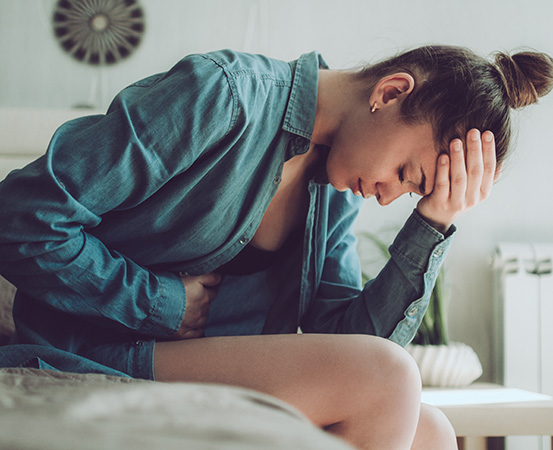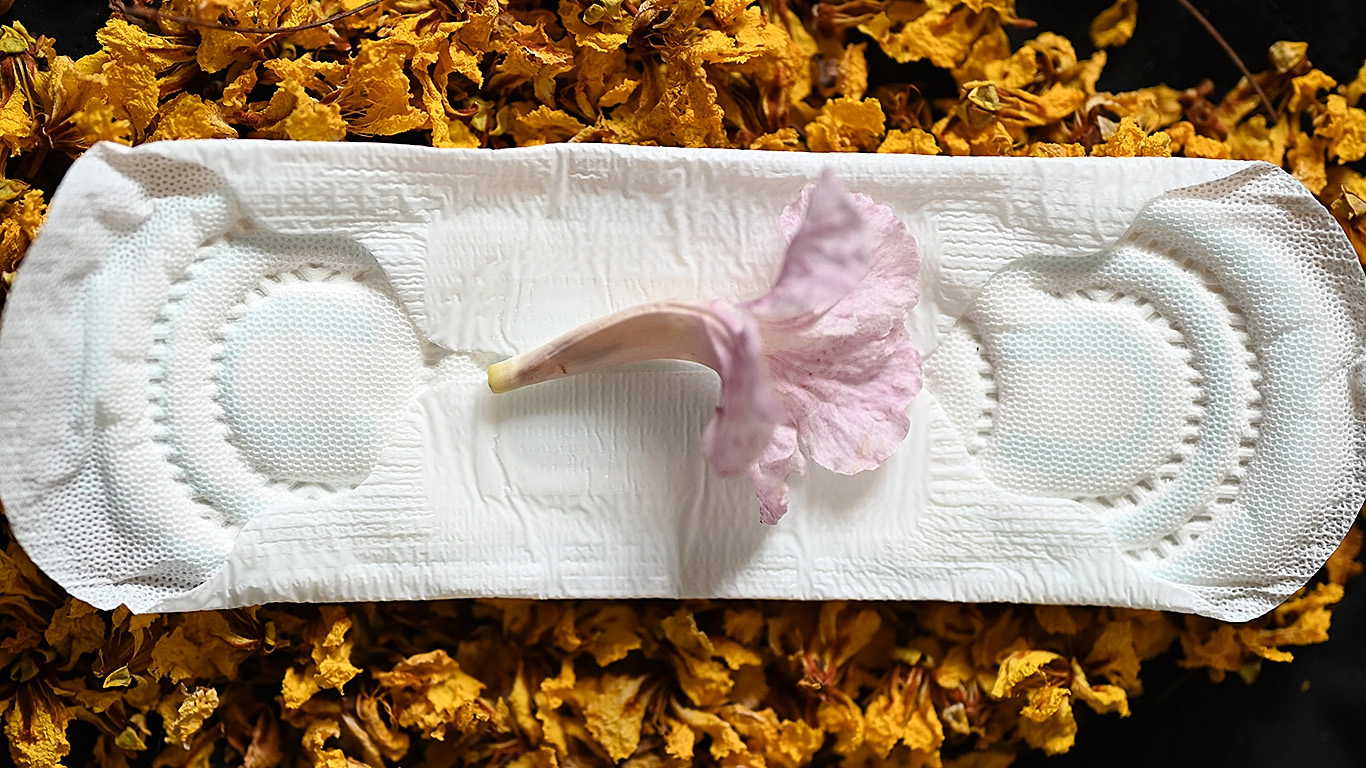The menstrual cycle is much more than just a physiological occurrence. During this time, women also face many issues that disturb their sleeping patterns: mood fluctuations, cramps and the constant fear of the appearance of stains on their attire while on periods disturbs them during sleep.
“The menstrual cycle is nothing but a series of natural changes that occur in our hormones at a monthly periodic level, which prepare the women’s womb for the pregnancy to occur,” says Dr N Sapna Lulla, lead consultant, obstetrics and gynecology, Aster CMI Hospital, Bengaluru. “The cycle is not the same for all women.”
READ MORE :
What menstrual blood colour reveals about health
Extensive back pain and abdominal pain are some of the symptoms which affect sleep.
“I have extensive back pain and abdominal pain during periods which make it difficult for me to sleep,” says Anu Maria (19), a management student at a private college in Mangaluru, Karnataka. “On these days, the usage of sanitary pads makes me feel irritated because of rashes, which affects my sleep quality, and I keep waking up more often.”
Facing a restless sleep pattern, particularly a few days before the onset of menstrual flow, is a major concern faced by Trisha Baliga, a 25-year-old who works in the private sector in Bengaluru.

“As I happen to have poor sleep quality and frequent disturbances in my sleep during the menstrual period, I find it hard to wake up on time and focus on my work,” she says. “Especially when I have night shifts, the issue of my menstrual cycle adds to the issue of already lost sleep.” She says the sleep pattern improves on its own as the menstrual cycle ends.
In their 2022 review paper ‘Menstrual Cycle Effects on Sleep’, Fiona C Baker and Kathryn Aldrich Lee say several hormonal changes which influence the circadian rhythm and sleep occur during the menstrual cycle and associated disorders. The extent to which the sleep quality worsens varies from person to person.
Dr Lulla says estrogen and progesterone are two crucial hormones involved in the menstrual cycle (menstrual cycle hormones).Prior to the occurrence of periods, a progesterone dip is observed which is responsible for disturbed sleep patterns and bad cramps during PMS. “When there is a change in estrogen levels, this can cause night sweating and breast tenderness, and affect sleep patterns,” she says.
According to ‘Subjective sleep quality in premenstrual syndrome’, an article published in Gynecological Endocrinology in 2012, premenstrual syndrome (PMS) is a cyclical disorder that causes women to have sleep disturbance.
“Women feel insomniac during menstruation and during premenstrual syndrome — that is, four to six days before their periods,” says Dr Varna Indushekar, histopathologist with the Ministry of Health, Kuwait. “Around ten to 12 per cent of women undergo this problem. They will either have difficulty sleeping at night or may feel sleepy throughout the day. It is related to hormonal changes that happen within the female body. The drop in progesterone is one of the reasons for it. Some women face sleep disturbance because melatonin is on the lower side in during their menstrual cycle.”
Bengaluru-based consultant pulmonologist Dr YA Sheriff says sleep disturbance during the premenstrual phase is because of an increase in the hormonal level.
Sleep and menstrual cycle
Dr Sheriff says eating healthy food that contains antioxidants and avoiding oily food helps in having a better sleep pattern. Going for a 20–25-minute walk during the premenstrual phase also assists in reducing sleep disturbance.
“The sleep pattern seems to improve during the menstrual period, but in certain cases the sleep disturbance may get serious,” says Dr Sheriff. “So, it’s advisable to maintain a sleep diary in which you can note down the expected menstrual cycle dates and the sleep patterns observed throughout the cycle. Women facing extreme sleep disturbance can approach a doctor. The information recorded in the sleep diary will help the doctor resolve their issue.”
Experts suggest that since the menstrual cycle is a physiological occurrence, having lifestyle modifications can help women sleep better during the menstrual cycle.
“Lifestyle modification — such as performing yoga and regular exercises — can act as treatment which reduces the severity of PMS symptoms and helps in improving the sleep pattern,” says Dr Indushekar. “It’s advisable to avoid alcohol, smoking and caffeinated drinks while on periods.”
Menstrual cycle and antibiotics
Dr Lulla says it is ideal to treat the symptoms faced by an individual during the period cycle — rather than depending on antibiotics. “The symptomatic treatments can include using hot water bags for reducing cramps that potentially disturb our sleep, getting into bed early to compensate for the lost sleep hours, eating meals with good amounts of vitamins, performing exercises that will cause an adrenaline rush and help maintain the hormonal balance in the body,” she says. “This will help women sleep better during menstrual periods.”


















2 Responses
So relatable
We are so glad that you found the article insightful and relatable. You can browse our Sleep section and Women wellness to read stories related to Sleep health and Menstrual health and hygiene.